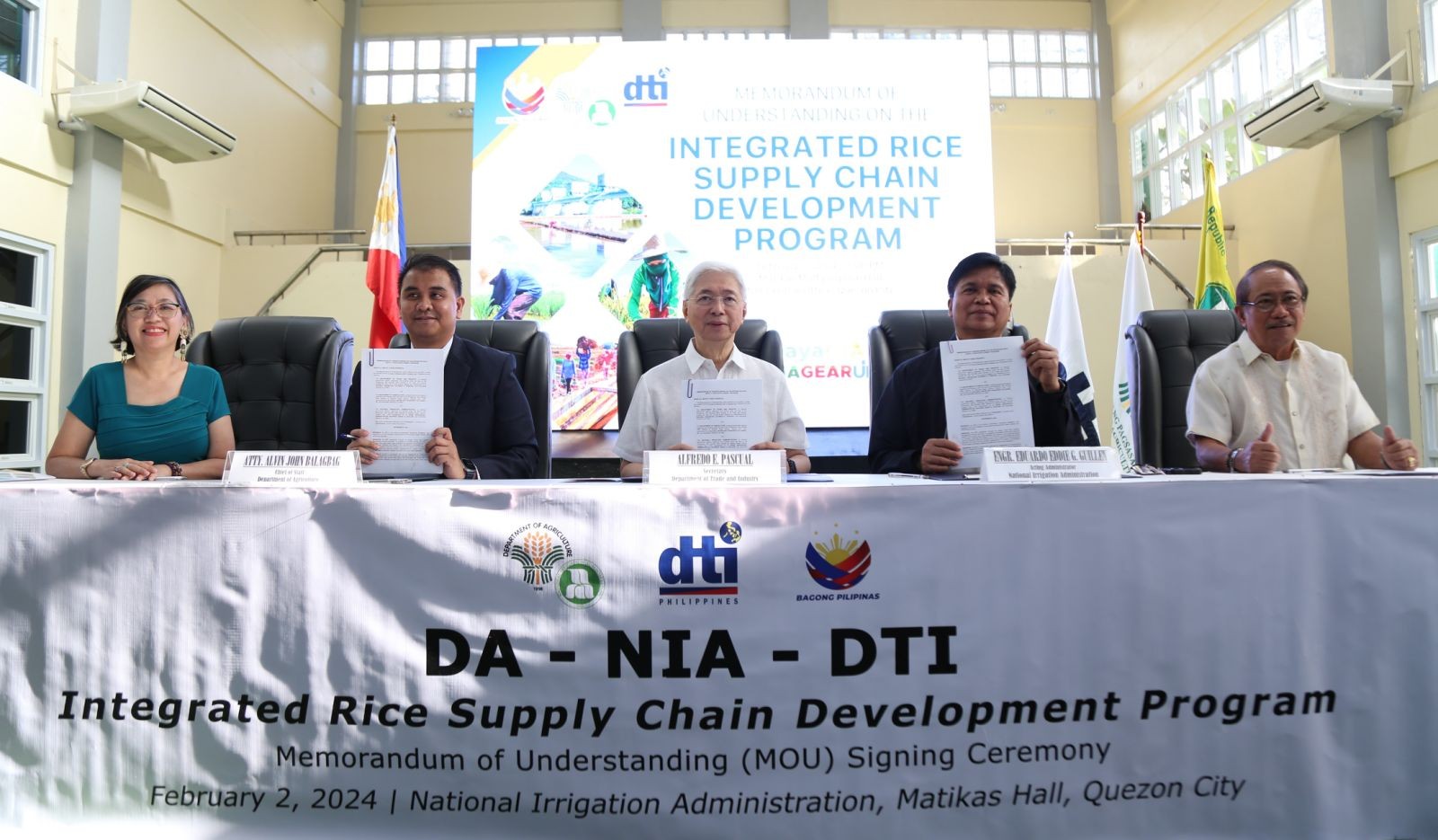DTI to develop farm-to-market supply chain
To streamline rice production
Despite the Philippines’ vast wealth in agricultural resources, the sector nationwide has been plagued with long-standing systemic problems such as weak growth of agricultural output, low income for farmers and fisherfolk, lack of inputs, finance, and technologies, as well as poor logistics infrastructure.
These are exacerbated with the rapid spikes in prices of commodities and raw materials due to inflation, resulting in higher expenses for transport, processing, and storage of produce.
Leaving these factors unaddressed exposes the Filipino population to the risks of food insecurity, particularly with children and low-income families suffering from malnutrition.
To avert a potential crisis, the Department of Trade and Industry (DTI), Department of Agriculture (DA), and National Irrigation Administration (NIA) have joined forces to implement an agricultural development program that can help farmers supply Filipinos’ beloved staple food.

The Integrated Rice Supply Chain Development Program seeks to enact measures that would allow the streamlining of processes from rice production to supplying rice in the market.
The memorandum of understanding (MOU) was signed on Feb. 2 by DTI Secretary Alfredo E. Pascual, DA Chief of Staff Atty. Alvin John Balagbag, and NIA Acting Chief Eduardo Eddie Guillen.
This interagency farm-to-market system not only aims to strengthen the competitiveness of the domestic rice market, but also attempts to reduce logistics costs and increase income earned by farmers.
The program also involves heavy promotion of proper classification and branding of rice to fully optimize the local market.
According to Pascual, the program will support the DTI's own food security initiative that aims to “safeguard affordable and accessible food for all Filipinos.”
The DTI's three-year Food Logistics Agenda was approved by the Malacanang last year as a workable plan of action to improve food distribution systems, unburden farmers with towering transport and logistics costs, all while targeting to obtain investments in the agriculture sector's logistics infrastructure.
These involve the integration of renovated food terminals and adding more food hubs in the National Capital Region (NCR) and other parts of the country.
The terminals will serve as legitimate and regulated avenues for producers to handover their products to reach consumers, while the hubs will be central command centers aimed to supervise the demand and supply chains.
The agenda also includes intensified enforcement of policies against hoarding, smuggling, overstaying food imports, and monitoring of warehouses and cold storage facilities.
To strengthen the logistics measures, the DTI has, in addition, endorsed the International Maritime Competitiveness Act, that would allow the Maritime Industry Authority (MIA) “to regulate shipping lines and guard against excessive shipping charges.”
The agency is also exploring the use of electronic commerce (e-commerce) modes to help farming communities directly reach consumers.
DTI has set up a pilot project with the Nueva Vizcaya Agricultural Terminal (NVAT) and the US Agency for International Development-Strengthening Private Enterprises for the Digital Economy (USAID-SPEED) to help small and medium enterprises (SMEs) transition to mature e-commerce businesses.
Aside from the Food Logistics Agenda, the DTI's partnership with the DA and NIA will also complement its RicetoRisePH business-to-business (B2B) platform which connects farmers to institutional buyers for trade efficiency.
RicetoRisePH can link farmers’ cooperatives, irrigators’ associations, local government units (LGUs) and other buyers to make rice and other produce more affordable and accessible to the public, while ensuring farmers earn stable incomes.
“Under the leadership of President Ferdinand R. Marcos Jr., let us rise to the occasion and work together to build a more robust, more resilient agricultural sector for the benefit of Filipino farmers and consumers,” said Pascual.